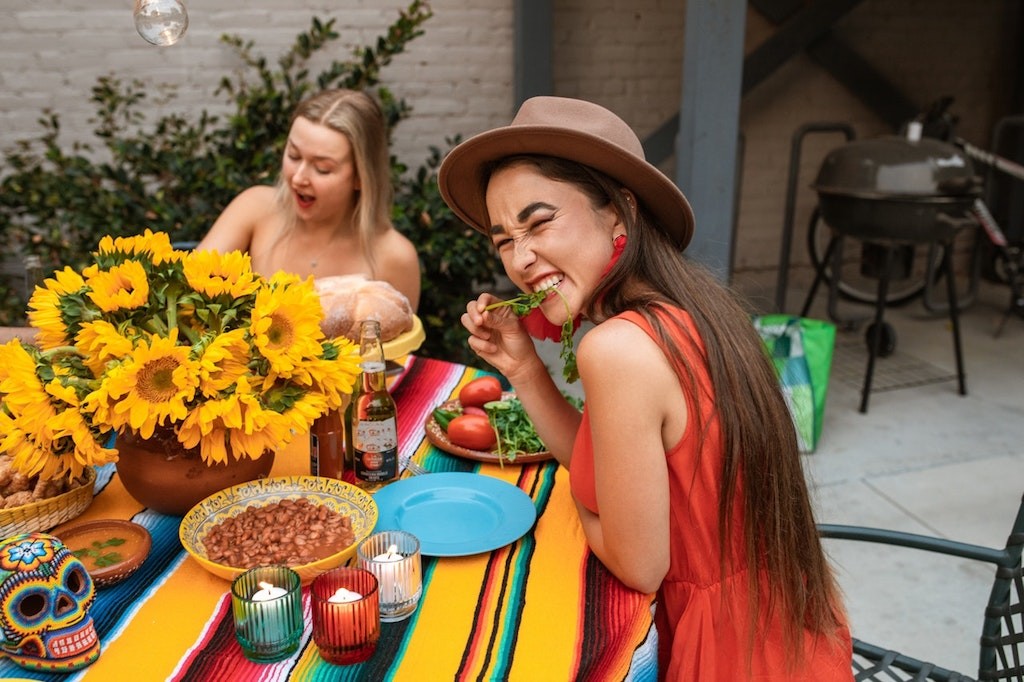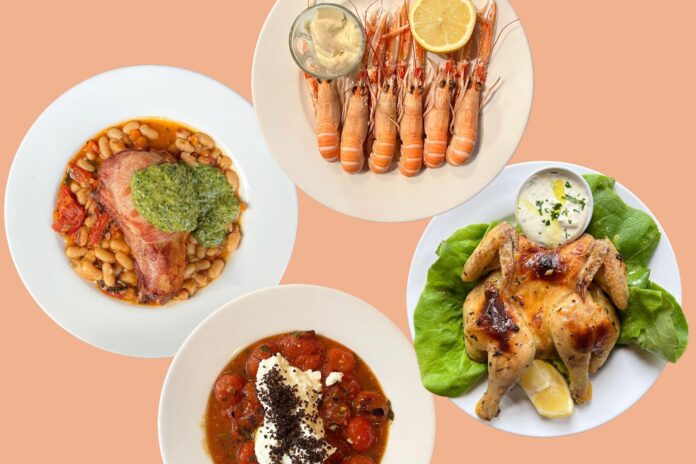When we hear the term ‘veganism’, it’s natural to first think of a diet composed primarily of vegetables, with no meat-eating whatsoever. And lots and lots of quinoa…
But veganism is so much more than having a fanatical obsession with broccoli, kale and the rest. Instead, a huge part of living a vegan lifestyle is being aware of the presence of animal products in all manner of shopping choices, from drinks to fashion, advocacy and education.
Whether your decision to go vegan is ethical, environmental or for health reasons, here’s how to live a vegan lifestyle in 2021.
A FOCUS ON DIET
The Vegan Society define ‘veganism’ as “a philosophy and way of living which seeks to exclude—as far as is possible and practicable—all forms of exploitation of, and cruelty to, animals for food, clothing or any other purpose; and by extension, promotes the development and use of animal-free alternatives for the benefit of animals, humans and the environment. In dietary terms it denotes the practice of dispensing with all products derived wholly or partly from animals.”
Indeed, veganism isn’t a part-time commitment. On the contrary, it strives to encapsulate many facets of everyday life. That said, diet is where veganism is most fully realised, and your eating choices will affect your everyday life most profoundly should you choose to go vegan.
Following a plant-based diet involves complete avoidance of meat, fish and insects, as well as eggs, dairy and honey. Those who are vegan also endeavour not to consume any food product that has used gelatine as a setting agent, as this commonly used ingredient is made from the collagen of animal bones. This means a diverse range of confectionery, including jelly (duh!), marshmallow, some shop-bought ice creams, cheesecake, panna cotta, gummy bears and more, are all out of bounds.
Vegans should also be aware of food products that have used animal stock or lard in their production process.
It should be noted that some medicines, medication and supplements use non-vegan gelling agents and may have been tested on animals. However, medical experts and the Vegan Society do NOT recommend that you avoid these. It can be dangerous to suddenly change medication without first consulting your GP or other healthcare professional.
Read: 4 IDEAL vegan alternatives for the food you love

A BELIEF SYSTEM BEYOND FOOD
A vegan lifestyle is a belief system and way of life that rejects the notion that other animals live only for our benefit. We were all here on this planet for a specific reason, and creatures other than humans make just as significant a contribution to our ecosystem as we do.
The vegan philosophy holds that humans can live peacefully with animals rather than acting as predators. In place of imposing control over animals, we may assist them in living their lives in the most natural way possible.
Vegans must act with advocacy and purpose to protect the lives of animals, endeavouring to stay informed at all times on production processes, ingredients and more. In terms of purchasing power, vegans should be proactive in their approach, looking for the ‘Certified Vegan’ logo, which confirms ‘’products that do not contain animal products or byproducts and that have not been tested on animals’’.
Alternatively, the ‘Vegan Trademark’ can be found on products, too, and offers the same commitments regarding food, drink cosmetics, clothing and household items.
FASHION
Right now, there’s a revolution occurring in the world of fashion, with shoppers making their feelings known, via their purses, about clothing that they isn’t animal friendly. A vegan wardrobe, put plainly, shouldn’t contain any clothes that feature any kind of animal byproduct, or have been tested on animals. This includes silk, cashmere, leather, wool, fur and feathers.
Instead, vegans choose to dress in synthetic materials rather than wool derived from sheep, llamas, alpacas and other animals, with such synthetics (look out for common vegan fabrics like twill, cotton and recycled polyester, specifically) now used to make everything from vegan leggings to wool free coats.
Fortunately, fashion companies are cottoning on (sorry) to this demand, and are making their animal-free credentials known. You can check the clothing label to identify what materials have been used and look for the Vegan Trademark and Certified Vegan logo that we mentioned earlier.
THE BOTTOM LINE
Whether you’re aiming to go vegan because of environmental or ethical concerns, or you just want to live a holistically more wholesome and healthy lifestyle, then we hope you’ve found what you’re looking for today.
And should you be looking for more insights into living a vegan lifestyle, do check out these 5 myths about being vegan dispelled today.





